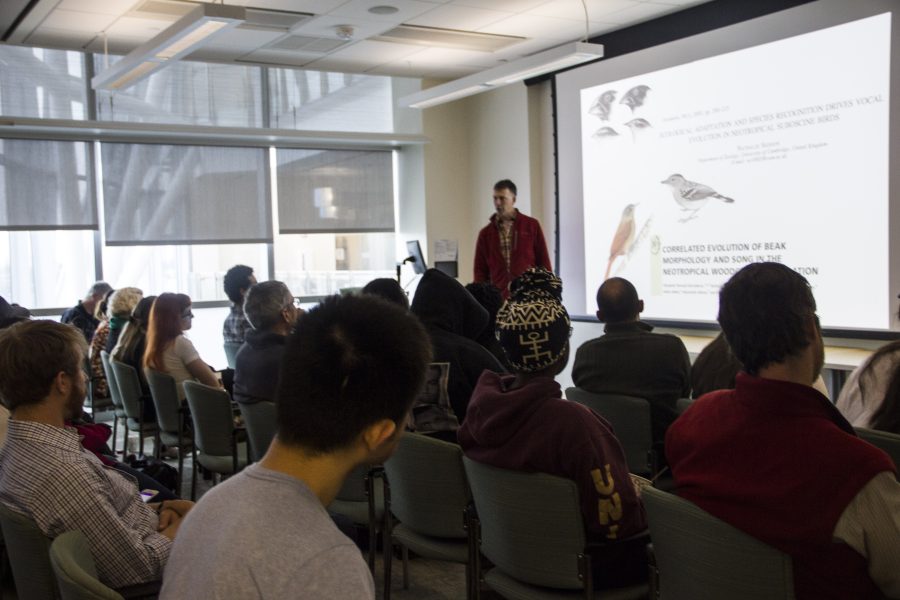Students and faculty gathered in a small, close-knit room in the Integrated Sciences Complex on Friday Sept. 22, to listen to a biology seminar at the University of Massachusetts Boston.
“My research focuses on specifically animal communication” said Jeffrey Podos, a biology professor from sister college University of Massachusetts Amherst, to students and faculty at the seminar. He was standing alongside biology professor Luis De Leon from UMass Boston who formally invited him to host the lecture.
This is the second series that UMass Boston’s biology department has hosted since the beginning of the school year and this time, Podos was invited to speak.
Podos introduced his most recent research project, led by him and with his Ph.D students Sara Goodwin, Dana Moseley, and Dave Hof. The research pertained to understanding sexual selection and evolution through animal behavior. The research involved testing birds’ response behavior to music in order to better understand the purpose of their behavior.
Podos first explained Goodwin’s research with chipping sparrows. To test their behavior, Goodwin recorded the sparrow’s song and replayed it back on the field in the Galapagos Islands where the research was conducted. Goodwin would either increase or decrease the speed or frequency of the song. After replaying the music and utilizing whatever frequency Goodwin chose she found that, often times, the sparrows responded by similarly imitating what they heard.
Goodwin and the team arrived at the conclusion that the chipping sparrows responded this way because they believed that they were carrying a conversation with their fellow partners in species.
During Goodwin’s experiment, while one chipping sparrow was directly responding to what it had heard through the device, Goodwin and her team noticed that other chipping sparrows joined their partner, responding to the device simultaneously. “They would come in and try to assist their neighbor as an ally, in almost all cases, to fight off competition,” explained Podos.
“This was an unexpected finding that emerged from her study, there were several times where a strange thing happened,” Podos added. Podos later explained that usually and most naturally, chipping sparrows usually do not do this. Looking at the songs of the sparrows and its assisting neighbor, Goodwin noticed a specific pattern: the ally performed a faster song to the assumed intruder (played through Goodwin’s device). “This was to fight off competition for survival,” said Podos.
Podos received his Bachelor’s degree from Franklin and Marshall College in 1989 and later received his Ph.D. in biology from Duke University in 1996. Podos also received his postdoctoral degree from the University of Arizona in 2000. He is now a professor at UMass Amherst and owns a lab at the university where he specializes in research on animal behavior and evolutionary biology.

